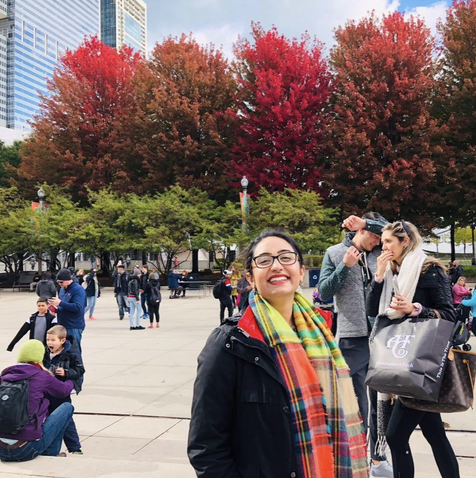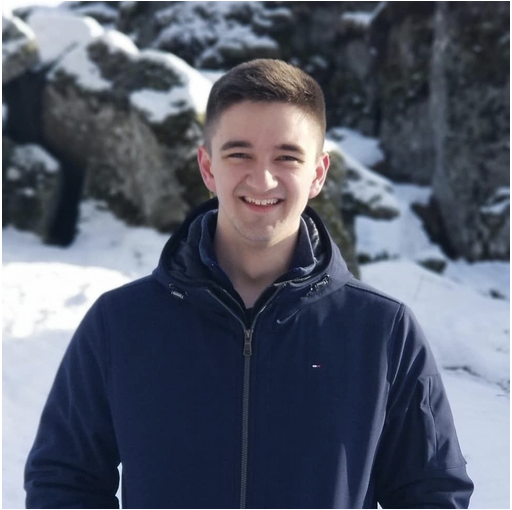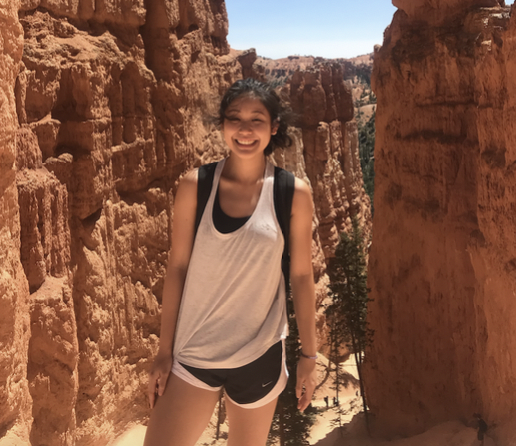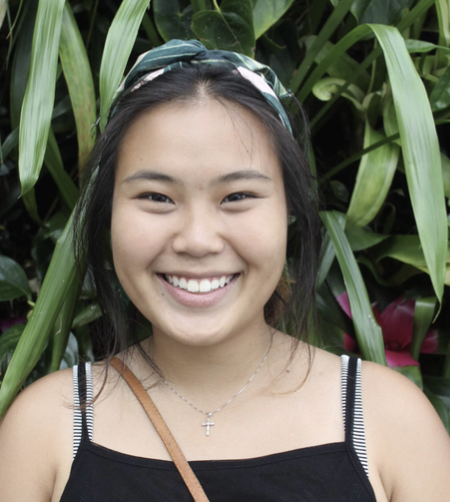Joyceline is a Tanzanian who holds a bachelor’s degree in chemical engineering from the University of Rochester.
Her research interest lies in energy decentralization, diversification, economics and policy making to empower women and improve the standard of living in East Africa.
She currently works at the Renewable & Appropriate Energy Laboratory on Off grid systems in remote areas in East Africa.
Prior to her MS, Joyceline interned at MIT and conducted research on aluminum batteries for electric vehicles. Additionally, since 2017 she has been working to empower marginalized young women of New Hope For Girls Organization in Tanzania. Among her recent projects is her team winning a $10,000 Davis Project for Peace Fellowship to establish a greenhouse farming business to act as a sustainable income generator for the girls.
My interests range from the integration of renewables into existing grids,the possibility of indigenes (especially women) in rural communities producing their own power or at least understanding its workings and the interaction between science and policy making in developing countries. I would love to study in the Renewable & Appropriate Energy Laboratory (RAEL) or the Energy Modeling, Analysis and Control Group (EMAC)
Gordon received his Batchelor’s Degree with Highest Honors in Chemistry from Williams College (2013), and then conducted research on solar energy in Nicaragua, and then spending time as a Visiting Scholar at the University of Oslo where he conducted research on the usage of electric vehicles in Norway as a fellow with the American Scandinavian Foundation.
At UC Berkeley and in ERG, Gordon is a Graduate Research Fellow where he works with Dr. Susan Shaheen in the Transportation Sustainability Research Center, at Lawerence Berkeley National Laboratory, and in RAEL.
Present position:
Researcher, International Council on Clean Transportation
Shuba is the co-director of the California Energy Commission sponsored project
” Engaging Communities in the Design of Sustainable Energy and Localized Futures (SELF)”
Among her many publications are a number that addresses the energy-access-affordability-climate nexus, including:
- The California Demand Response: Potential Study, Phase 3; Brian F.Gerke,Giulia Gallo,Sarah J. Smith, Jingjing Liu, Peter Alstone, Shuba V. Raghavan, Peter Schwartz, Mary Ann Piette, Rongxin Yin and Sofia Stensson.
- Translating climate change and heating system electrification impacts on building energy use to future greenhouse gas emissions and electric grid capacity requirements in California; Brian Tarroja, Felicia Chiang, Amir AghaKouchak, Scott Samuelsen, Shuba V. Raghavan, Max Wei, Kaiyu Sunand Tianzhen Hong, Applied Energy, 2018, vol. 225, issue C, 522–534
- Building a Healthier and More Robust Future: 2050 Low-Carbon Energy Scenarios for California. California Energy Commission. Primary Authors: Max Wei, Shuba Raghavan, Patricia Hidalgo-Gonzalez, Contributing Authors: Rodrigo Henriquez Auba, Dev Millstein, Madison Hoffacker, Rebecca Hernandez, Eleonara Ruffini, Brian Tarroja, Amir Agha Kouchak, Josiah Johnston, Daniel Kammen, Julia Szinai, Colin Shepard, Anand Gopal, Kaiyu Sun, Tianzhen Hong, and Florin-Langer James. Publication Number: CEC-500‑2019-033; March 2019
- Pathways to Decarbonize Residential Water Heating in California, Shuba V Raghavan, Max Wei, Daniel Kammen, Energy Policy 109 (2017) 441–451
- Adoption of Solar Home Lighting Systems in India: What might we learn from Karnataka? Harish, Iychettira, Raghavan, Kandlikar, Energy Policy, Vol 62, November 2013, pp ‑697–706.
- Assessing the impact of the transition to Light Emitting Diodes based solar lighting systems in India, Santosh Harish, Shuba V Raghavan, Milind Kandlikar, Gireesh Shrimali, Energy for Sustainable Development, Volume 17, Issue 4, August 2013, pp. 363–370.
Bo is a doctoral student in Electrical Engineering at Chongqing University. His work is focused on the integration of renewable energy and of electric vehicle fleets into the Chinese power grid.
Guangzhi is a PhD student in Energy Systems Analysis at Tsinghua University. He has bachelor’s degrees in Electrical Engineering and in Management from Tsinghua University. He has been a visiting student at the University of Bath and at the Israel Institute of Technology.
His work is focused on the role of carbon pricing and renewable energy deployment in China.
Guangzhi will be a visiting student at RAEL from October 2019- July 2020.
Current position:
Ph.D student in Electrical Engineering, Tsinghua University.
Xiaoli is a PhD student in the School of Environmental & Natural Resources, Renmin University of China
She has a range of research interests, including the Low-carbon transition pathway of China’s power sector, the job creation potential of the new green energy economy, and the role of energy storage in decarbonization in China and Europe.
She will be a visiting research student at RAEL from October 2019 — August 2020.
Dongran Liu is a doctoral student in the School of Economic and Management at North China Electric Power University. She has research interests in energy markets, optimization and risk management, and distributed energy resource planning.
At RAEL she is working on modeling the future of the Chinese electric power system using SWITCH. She is part of a partnership with European energy storage associations to examine the market opportunities and carbon benefits of the installation of a range of energy storage technologies.
She will be a visiting student in RAEL from October 2019 — August 2020.
Current position:
PhD student, North China Electric Power University
Natalie is an Energy Engineering (https://engineeringscience.berkeley.edu/energy-engineering/) major at UC Berkeley. Her studies focus on integrating power system analysis with data science, optimizing resource use and studying the outlook of renewable technology adoption in various parts of the world.
In RAEL, Natalie is currently engaged in the SWITCH China project. She works on modeling grid expansion for China, looking at how decarbonization pathways and electric vehicle grid integration will affect the future energy mix. Her topics of interest include long-term power system planning, applications of international energy policy, projecting energy demand, and storage technology adoption.
Meet the Laos Energy Modeling and Policy Analysis (Undergraduate!) Team:
The focus of this inter-disciplinary and inter-university research group is to develop sustainable energy, water, and land-use scenarios for Laos, and to work with local stake-holders on the costs and benefits for communities, the nation, and the regional commerce in energy, water, food, timber and other commodities.
Aaditee Kudrimoti
 Bio: Aaditee is a fourth-year at UC Berkeley studying political science and public policy with a concentration in energy, development, and international relations. Aaditeeis originally from Tucson, Arizona, where she began to develop an interest in international environmental affairs. At UC Berkeley, Aaditeeis working on projects in the political economy of Chinese development finance, rural electrification, and collective action. Aaditeehas become especially interested in how the rise of renewable technology is influencing energy diplomacy around the world. She hopes to pursue a career in academia and public policy and work on governance tools to build the bargaining capacity of LDCs against MNCs, foreign state-owned enterprises, etc. on the subject of FDI and other types of investment. She sees SWITCH-Laos as having the potential to serve as a critical tool in assisting the increase of the Lao people’s bargaining power over FDI in the energy sector and thus their autonomy in determining their own economic development. Outside school, Aaditee’s interests include dance, food journalism, and cooking.
Bio: Aaditee is a fourth-year at UC Berkeley studying political science and public policy with a concentration in energy, development, and international relations. Aaditeeis originally from Tucson, Arizona, where she began to develop an interest in international environmental affairs. At UC Berkeley, Aaditeeis working on projects in the political economy of Chinese development finance, rural electrification, and collective action. Aaditeehas become especially interested in how the rise of renewable technology is influencing energy diplomacy around the world. She hopes to pursue a career in academia and public policy and work on governance tools to build the bargaining capacity of LDCs against MNCs, foreign state-owned enterprises, etc. on the subject of FDI and other types of investment. She sees SWITCH-Laos as having the potential to serve as a critical tool in assisting the increase of the Lao people’s bargaining power over FDI in the energy sector and thus their autonomy in determining their own economic development. Outside school, Aaditee’s interests include dance, food journalism, and cooking.
Alex Lathem
 Bio: Alex Lathem is a third-year undergraduate at Yale University. He is a physics major with several years of experience using programming languages, including Python SQL, C, and Bash, to analyze scientific data. Previous research projects Alex has worked on include astrometry of near-Earth asteroids and the creation of a Hubble curve through the analysis of Type Ia supernovae. Alex spent the summer of 2019 working on the SWITCH model for China, and is very excited to apply the skills he learned there to a version for Laos. Outside of research, Alex is also interested in music, video game design, linguistics, and history.
Bio: Alex Lathem is a third-year undergraduate at Yale University. He is a physics major with several years of experience using programming languages, including Python SQL, C, and Bash, to analyze scientific data. Previous research projects Alex has worked on include astrometry of near-Earth asteroids and the creation of a Hubble curve through the analysis of Type Ia supernovae. Alex spent the summer of 2019 working on the SWITCH model for China, and is very excited to apply the skills he learned there to a version for Laos. Outside of research, Alex is also interested in music, video game design, linguistics, and history.
Ashley Yip
 Bio: Ashley is a second-year undergraduate studying environmental science with an emphasis in global politics. She moved to New Mexico, where she developed an interest in environmental affairs. At UC Berkeley, she is involved in a pre-law association that helped her explore her interest in law and how she may integrate that into environmentalism. Off campus, she is working on a sex education reform project in Singapore with the Ministry of Education. She is constantly exploring the intersection between policy, education, and the environment. She hopes to return home to Singapore and pursue a career in international environmental policy or law within Southeast Asia. Ashley chose to work on SWITCH-Laos not only because greening ASEAN’s economic development is essential to tackling climate change, but also because she is familiar with the demographic. She has done research in regards to both urban and rural agriculture in Asia and the US, and led research for environmental management in business operations. Outside of school, her interests include climbing, hiking, piano, and camper vans.
Bio: Ashley is a second-year undergraduate studying environmental science with an emphasis in global politics. She moved to New Mexico, where she developed an interest in environmental affairs. At UC Berkeley, she is involved in a pre-law association that helped her explore her interest in law and how she may integrate that into environmentalism. Off campus, she is working on a sex education reform project in Singapore with the Ministry of Education. She is constantly exploring the intersection between policy, education, and the environment. She hopes to return home to Singapore and pursue a career in international environmental policy or law within Southeast Asia. Ashley chose to work on SWITCH-Laos not only because greening ASEAN’s economic development is essential to tackling climate change, but also because she is familiar with the demographic. She has done research in regards to both urban and rural agriculture in Asia and the US, and led research for environmental management in business operations. Outside of school, her interests include climbing, hiking, piano, and camper vans.
Rachel Ng

Bio: Rachel is a second-year Environmental Science and Data Science major. A Singapore-native, Rachel describes that SWITCH-Laos extremely important to her because it is an important step towards the energy security of Southeast Asia. She believes that the sustainable electrification of Southeast Asia is key to regional grid stability and energy trade. She is pursuing SWITCH-Laos as critical in leading the way towards sustainable electrification. Rachel is interested in the intersectionality between climate change and community, exploring how community based issues caused by climate change can be alleviated through data. Furthermore, Rachel is currently concerned about equal access to education and volunteers weekly as a mentor to elementary school students. In the future, she hopes to return to Singapore and guide environmental change through creating an ecosystem of sustainable communities and businesses. Her hobbies include dance, rock climbing and water sports.




You must be logged in to post a comment.